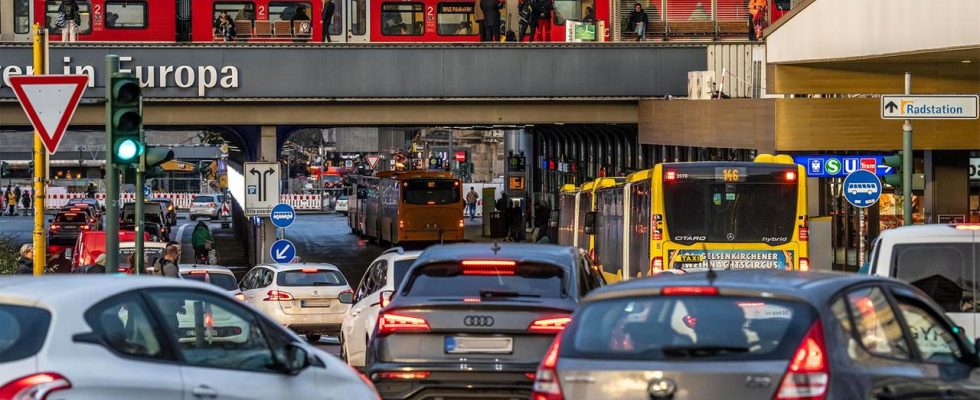In Germany’s larger cities, traffic flowed slower on average last year than in 2022. Progress is particularly slow in Hamburg, but progress is rapid in Wuppertal.
A current analysis of traffic patterns by mapping specialist TomTom shows that traffic in larger cities in Germany flowed slower in 2023 than in the previous year. TomTom analyzed traffic in 27 cities. The company registered a daily average decrease in speed in 13 cities, and no change was detected in ten cities. In four cities, including Berlin and Frankfurt am Main, the numbers indicate a slight acceleration in traffic flow.
As in 2022, Hamburg is the city with the lowest average speed throughout the day. It took the Hanseatic people around 24 minutes to travel ten kilometers, around half a minute more than in 2022.
Statistically speaking, the drivers in Wuppertal made the quickest progress. It only took them around 13 minutes to cover this distance. In Berlin, as in Leipzig, the value was 22 minutes, in Frankfurt/Main and Munich it was 21 minutes, and in Cologne, Kassel, Dresden and Wiesbaden it was 20 minutes each.
Tunnels and bridges slow down
TomTom identified several reasons for the particularly slow traffic flow in Hamburg. “The static factors play a decisive role in this: numerous tunnels and bridges as well as the port of Hamburg in the city area mean that even under ideal traffic conditions, Hamburg has the lowest average speed of all German cities.”
In an international comparison, even the Hanseatic city is still doing well: a typical ten-kilometer journey in London takes an average of 37 minutes. Drivers in Dublin, Toronto, Milan, Lima, Bengaluru and Puna in India as well as in Bucharest, Manila and Brussels are also plagued by traffic jams with values of 27 minutes and more.
Delays caused by traffic jams are the longest in Hamburg
In Germany, Hamburg is also at the top when it comes to delays due to traffic jams during rush hours in the morning and evening. In 2023, commuters there spent an average of 55 minutes a day in the car when they covered a typical ten-kilometer route during rush hour. Delays caused by traffic jams account for more than 19 minutes. Extrapolated over the entire year, the additional time that Hamburg residents spent in the car added up to more than 74 hours. In 2022 it was 8.5 hours less. At that time, Munich topped this ranking.
According to the information, data from smartphones and built-in navigation systems were evaluated for the “TomTom Traffic Index” for 2023. It is estimated that every seventh automobile in Germany was involved in the data collection. TomTom evaluated data from around 600 million vehicles worldwide.

